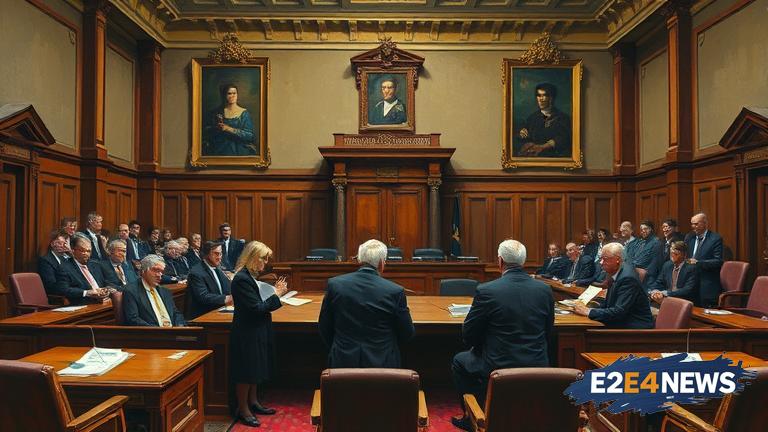The UK’s immigration tribunal system is facing a major overhaul, with proposed reforms aimed at streamlining the process and reducing delays. However, critics argue that the changes will undermine the integrity of the system and send the wrong message to those seeking to exploit the UK’s immigration laws. The reforms, announced by Labour leader Sir Keir Starmer, have been met with widespread criticism from lawyers, judges, and human rights groups. They argue that the changes will limit access to justice for vulnerable individuals and families, and will ultimately lead to more, not fewer, delays and appeals. The proposed reforms include the introduction of a new, more restrictive appeals process, which will limit the ability of individuals to challenge decisions made by the Home Office. This has raised concerns that the system will become even more biased in favor of the government, and that the rights of individuals will be further eroded. Furthermore, the reforms will also see the introduction of new, more stringent requirements for individuals seeking to appeal against immigration decisions. This will include the need for applicants to demonstrate that they have a ‘strong’ case, rather than simply a ‘reasonable’ one. Critics argue that this will create a significant barrier to justice for many individuals, particularly those who are already vulnerable or marginalized. The reforms have also been criticized for their potential impact on the rule of law, with many arguing that they will undermine the independence and impartiality of the judiciary. The introduction of a more restrictive appeals process, for example, will limit the ability of judges to make decisions based on the merits of individual cases. Instead, they will be forced to follow a more rigid and inflexible framework, which will reduce their ability to consider the unique circumstances of each case. This has raised concerns that the system will become more arbitrary and unfair, and that the rights of individuals will be further eroded. In addition to these concerns, the reforms have also been criticized for their potential impact on the UK’s international reputation. The UK has long been seen as a leader in the field of human rights and the rule of law, but these reforms have raised concerns that this reputation is being undermined. The introduction of a more restrictive appeals process, for example, will be seen as a significant step backwards, and will undermine the UK’s commitment to upholding the rights of all individuals, regardless of their nationality or immigration status. The reforms have also been criticized for their lack of transparency and accountability. The government has been accused of rushing through the changes without proper consultation or scrutiny, and of failing to provide adequate information about the potential impact of the reforms. This has raised concerns that the system will become even more opaque and unaccountable, and that the rights of individuals will be further eroded. Despite these concerns, the government has pressed ahead with the reforms, arguing that they are necessary to reduce delays and improve the efficiency of the system. However, critics argue that this is a false dichotomy, and that it is possible to improve the efficiency of the system without undermining the rights of individuals. They argue that the government should be focusing on addressing the root causes of delays, such as the lack of resources and the complexity of the system, rather than simply introducing more restrictive and arbitrary rules. The controversy surrounding the reforms has sparked a wider debate about the UK’s immigration system, and the need for a more comprehensive and nuanced approach to immigration policy. Many argue that the current system is broken, and that it is in need of fundamental reform. They argue that the government should be focusing on creating a more fair and humane system, one that balances the need to control immigration with the need to protect the rights of all individuals. The reforms have also raised concerns about the potential impact on the most vulnerable individuals, including refugees and asylum seekers. These individuals often rely on the immigration tribunal system to seek protection and safety, and the proposed reforms will make it even more difficult for them to access justice. The reforms have been criticized for their potential impact on the mental and physical health of these individuals, who will be forced to navigate an even more complex and arbitrary system. In conclusion, the proposed reforms to the UK’s immigration tribunal system have been met with widespread criticism, and have sparked concerns about access to justice, the rule of law, and the rights of individuals. The government must listen to these concerns, and work to create a more fair and humane system, one that balances the need to control immigration with the need to protect the rights of all individuals.
